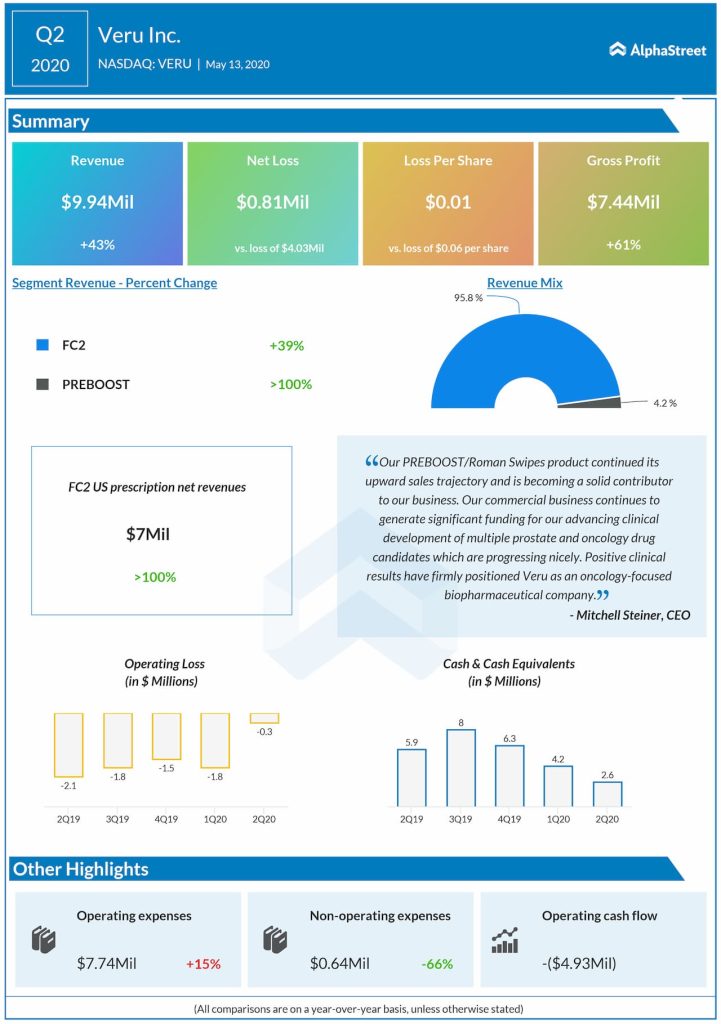
[irp posts=”61195″]
To fund the trials, Veru has applied for grants from BARDA (Biomedical Advanced Research and Development Authority) and DARPA (Defense Advanced Research Projects Agency). CEO Mitchell Steiner said during the call:
“Our thinking is to get non-dilutive funding to help us do two things; one is to continue the drug development, the clinical trial development; and second is to be able to manufacture the doses that are going to be required.”
ADVERTISEMENT
Focus on oncology
Even as the company ventures into COVID-19 research, Veru stresses that its core focus will be on oncology. Veru, which projects itself as “The prostate cancer firm,” has three oncology candidates in the pipeline, with the most advanced one – Zuclomiphene – currently in Phase 3. In an earlier interview with AlphaStreet, the CEO had said that he expects the three prostate cancer drugs to hit the market between 2022 and 2024.
[irp posts=”51834″]
So does the COVID-19 efforts constitute a revenue-generation opportunity? This was a question posed by Cantor Fitzgerald analyst Brandon Folkes during the conference call. Steiner replied:
“This is not a call of duty for charity. We do think also that the endpoint that we’re going after is a clinically meaningful one. We’re a small company that can use these resources to help move our other programs along and to well capitalize our company, so we can become a major force in oncology.”
Endpoint is
crucial
VERU-111 is an orally administered microtubule depolymerization agent that works by disrupting the transport system (microtubules) used by the viruses to attack cells. Referring to Gilead’s (NASDAQ: GILD) Remdesivir, the CEO pointed out the importance of noting the endpoints:
“I’ll just point out why Gilead’s gotten so much pressed over three or four days leaving the hospital. In that crazy period of time, people were leaving the hospital because beds were needed for sicker patients. And is that endpoint really a relevant endpoint? Because people can leave the hospital for reasons independent of the disease. But you can’t fake a death and you can fake being on a respirator. And so, if you have an endpoint of being alive and not in respiratory distress, that’s a clinically meaningful endpoint.”
The Phase 2 trials will be conducted on patients with high risk to acute respiratory distress syndrome.
For more insights about the firm, read Veru’s latest earnings call transcript here. It’s free.
